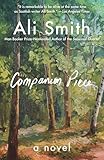History does tend to repeat itself, especially where
families are concerned.
Mick Riva
abandons his wife and children, multiple times, after he becomes a superstar
singer.
His glamorous daughter Nina’s
husband, Brandon, has just left her after he becomes a champion tennis
player.
See the pattern?
Nina, after dropping out of high school to
raise her three younger siblings, has become famous herself as a modern-day
surfing pin-up girl.
Nina’s brother Jay
is a world-famous surfer, and their brother Hud is a very successful and
well-known photographer.
Their youngest
sibling, Kit, is the best surfer of them all but hasn’t achieved the
recognition that the other three enjoy.
Are there too many celebrities in this novel?
Most definitely.
And, by the way, Brandon left Nina for the #1
women’s tennis player.
Of course, Nina
struggled to make ends meet before her career took off, but the family-owned
restaurant helped put food on the table.
This is definitely a beach read, as the title suggests, with the biggest
conflict being a falling out between the two brothers when one is sleeping with
the other’s ex-girlfriend.
Other than
that, errant husbands keep returning after their dalliances have run their
course, one character turns out to be gay, and Nina’s annual party gets way out
of hand, with guests—a mishmash of famous names and fictitious ones-- literally
swinging from the chandelier.
The novel
moves along at a good pace, and the author writes assuredly about sand and
surf, but there just isn’t much substance here nor any reason to care about the
outcome.














